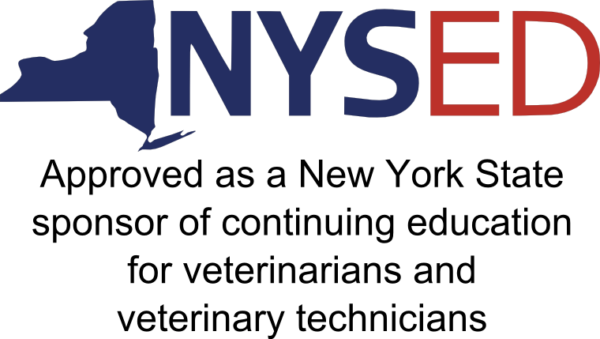ExpiredManaging common gastro-intestinal problems- online course
Live from Charleston SC, online course
| September 18th - 20th, 2020

Stan Marks B.V.Sc., Ph.D.
Diplomate, American College of Veterinary Internal Medicine (internal medicine and oncology)
Diplomate American College of Veterinary Nutrition
Professor of Medicine
U.C. Davis
Tim Hackett D.V.M.
Diplomate, American College of Veterinary
Emergency & Critical Care
Professor of Emergency & Critical Care
Colorado State University
Howard Seim III D.V.M.
Diplomate, American College of Veterinary Surgeons
Professor of Surgery
Colorado State University
Seminar Schedule:
|
Single day registration available: All times are Eastern time. Seminars start each day at 5.00am Pacific, 6.00am Mtn, 7.00am Central & 8.00am Eastern Friday (5.5 CE hrs) Dr. Hackett: 8:00am – 9:40am: The Acute Abdomen Emergency veterinarians are often faced with animals in acute abdominal distress. The patient with signs of intra abdominal disease may require emergency treatment for shock, even surgery before a definitive diagnosis is reached. With an understanding of the causes and pathophysiology of abdominal pain and trauma, attendees will review the necessary decisions, medical treatments and the timing of surgery for the best outcomes. Preoperative stabilization, sedation, anesthesia and analgesia for these cases will also be covered. Case examples will include viral enteritis, gastric dilatation volvulus, gastrointestinal foreign bodies, peritonitis, penetrating trauma and uroperitoneum.
Dr. Seim: 9:50am – 10.40am: Surgical management of GDV: the 10 minute gastropexy 10:50am – 11.40am: Managing linear foreign bodies in dogs Dr. Marks: 11:50am -1:30pm Rational approach to diagnosing and managing dogs and cats with refractory chronic diarrhea – this session will use a case-based format to highlight the rational diagnostic approach to patients with chronic diarrhea, as well as the implementation of probiotics, dietary therapy, immunomodulatory therapy, cobalamin and folate, and antibiotics. Saturday (5.5 CE hrs) Dr. Hackett: 8:00am – 9:40am: Shock and transfusion medicine This lecture will use a variety of small animal cases to cover metabolic derangements, emergency crystalloid and colloid fluid therapy, transfusions and vascular access. Attendees will learn to recognize, differentiate and treat the major causes of metabolic and circulatory shock. Case examples will include viral enteritis, parasitic anemia, peritonitis, hypoadrenocorticism, diabetic ketoacidosis and hemorrhagic shock in a dog with an acute intraabdominal bleed. Canine and feline transfusion medicine will be covered with attendees reviewing the importance of in-house blood typing, cross matching, blood product collection, storage, and administration.
Dr. Seim: 9:50am – 10.40am: Bleeding splenic hemangiosarcoma; 4 ligature splenectomy 10:50am – 11.40am: Colopexy for the treatment of recurrent rectal prolapse Dr. Marks: 11:50am – 1:30pm: What’s the latest on megaesophagus? – this session will focus on practical strategies for managing megaesophagus in dogs, and methods for preventing aspiration pneumonia. How do I manage and prevent esophagitis in my patients? This session will review the most common causes of esophagitis in dogs and cats, and the steps that can be taken to diagnose and manage this common disorder. Optimization of pharmacological and dietary therapy for affected patients will also be discussed with a review of the pros and cons of H2-blockers versus proton pump inhibitors. The session will conclude with discussion on the steps that can be taken to prevent esophagitis in hospitalized and anesthetized patients. Sunday (5 CE hrs) Dr. Hackett: 8:00am – 9:40am: Postoperative Critical Care Recognizing the importance of the entire veterinary team in postoperative management of the critical patients reviewed during this course. this lecture will follow several cases (Gastric dilatation volvulus, septic peritonitis, and the traumatic uroperitoneum) to discuss the care and monitoring devoted to these patients. The gastrointestinal tract is uniquely sensitive to tissue hypoxia in our small animal patients. With a focus on gastrointestinal function and critical care nutrition, attendees will also review ways to monitor and optimize respiratory function, fluid balance, cardiac function, renal function, neurologic function, the coagulation system, blood pressure, patient comfort, sedation and pain control.
Dr. Seim: 9:50am – 10.30am: Surgically managing gall bladder mucocele; from early presentation to rupture! 10:40am – 11.20am: Surgical management of penetrating abdominal trauma
Dr. Marks: 11:30am – 1:00pm: What’s the latest on diagnosing and managing dogs with acute hemorrhagic diarrheal syndrome (AHDS)? This case-based presentation will highlight a practical approach to working up the canine patient with AHDS with discussion on therapeutic strategies to manage the disorder. The session will also review the specific indications for incorporation of antimicrobials and the optimal selection of antimicrobials. |
Seminar Topics:
-
Rational approach to diagnosing and managing dogs and cats with refractory diarrhea
-
What’s the latest on managing canine megaesophagus?
-
When and how do I implement probiotics in GI disease?
-
Rational use of GI protectants in dogs and cats.
-
When should I order a diarrhea PCR panel and when should I implement antimicrobial therapy in my GI cases?
-
Emergency management of the acute abdomen
-
Sedation, anesthesia, and analgesia in the critical patient
-
Metabolic emergencies
-
Crystalloids, colloids and blood products
-
Critical care nutrition
-
Surgical management of GDV: the 10 minute gastropexy
-
Managing linear foreign bodies in dogs
-
Bleeding splenic hemangiosarcoma; let’s get that spleen out with 4 ligations!
-
Colopexy for the treatment of recurrent rectal prolapse
-
Surgically managing gall bladder mucocele; from early presentation to rupture!
-
Surgical management of penetrating abdominal trauma
Seminar Speakers
-
 Stan Marks B.V.Sc., Ph.D.
Diplomate, American College of Veterinary Internal Medicine (internal medicine and oncology)
Diplomate American College of Veterinary Nutrition
Professor of Medicine
U.C. Davis
Stan Marks B.V.Sc., Ph.D.
Diplomate, American College of Veterinary Internal Medicine (internal medicine and oncology)
Diplomate American College of Veterinary Nutrition
Professor of Medicine
U.C. Davis
-
 Tim Hackett D.V.M.
Diplomate, American College of Veterinary
Emergency & Critical Care
Professor of Emergency & Critical Care Medicine
Chair, Dept. of Clinical Sciences
Cornell University
Tim Hackett D.V.M.
Diplomate, American College of Veterinary
Emergency & Critical Care
Professor of Emergency & Critical Care Medicine
Chair, Dept. of Clinical Sciences
Cornell University
-
 Howard Seim III D.V.M.
Diplomate, American College of Veterinary Surgeons
Professor of Surgery
Colorado State University
Howard Seim III D.V.M.
Diplomate, American College of Veterinary Surgeons
Professor of Surgery
Colorado State University
CE Hours
This seminar is approved for up to 16 CE hrs.
This program has been approved for a maximum of 16 hours of continuing education credit in jurisdictions, which recognize AAVSB’s RACE approval; however, participants should be aware that some boards have limitations on the number of hours accepted in certain categories and /or restrictions on certain methods of delivery of continuing education. Call IVS at 800-487-5650 for further information.

IVS complies with the following guidelines:
- Speakers are recognized specialists
- Mandatory recorded attendance
- Certificate of attendance
- Complete seminar notes
- Approved for 16 CE hrs by the AAVSB Race program
Registration Fees:
After registering: your PAYMENT NOTIFICATION E-MAIL will contain a Zoom ink for you to pre-register for each webinar. You need to do this prior to each webinar, so that you get a personalized link to the actual webinar.
Veterinarians: IVS attendees who currently have an FTC (Future transfer Credit) from a previously cancelled seminar:
- Please do not use the online registration as you will be charged again. You cannot use the credit thru this online registration.
- Please e-mail with your request (include name of registrant and which seminar you were originally scheduled to attend) for registration – We will register you and deduct this amount from your credit.
E-mail your request to: ivsceonline@gmail.com
Already registered for 3 previous live IVS online courses: 30% per day- please enter this discount coupon code during check out: after3discount
Registration Includes:
- up to 16 CE hours. Friday and Saturday are 5.5 hCE hours each day. Sunday is 5 CE hours.
- access to online course notes
- certificate of attendance available online
After registering: your PAYMENT NOTIFICATION E-MAIL will contain a Zoom link for you to pre-register for each webinar. You need to do this prior to each webinar, so that you get a personalized link to the actual webinar.
Seminar Registration:
Add to Calendar
-
Charleston online course
September 18, 2020 - September 20, 2020
8:00 am - 1:00 pm
Register online
Online registration is easy and fast.
But please confirm your hotel reservations prior to completing your registration or booking flights. Many Hotels are selling out many months ahead of our seminars. If you need to book a hotel room, click the link to the online hotel registration page. If none is available for your selected seminar, please fill out our hotel request form or contact our office at 800-487-5650. Please note that hotel rooms are not confirmed until you receive confirmation from the hotel (if you booked online thru our group link) or from our office for hotels that do not offer the online link.
IVS is now required by AAVSB RACE to upload your completed attendance into their “RACEtrack” system. Your state of license and your license number are required for all seminars starting in January 2022. More information is available at https://www.aavsb.org/ce-
Questions?
For regular seminars: ivseminars@yahoo.com
Accommodation Registration
Reserving Rooms
We reserve rooms starting the day prior to the seminar and ending on the last seminar day. However, if you need additional days, we will work with the hotel to accommodate your request based on availability.
Getting Confirmation
After you submit this hotel request form, you will receive an e-mail confirmation of your request for the hotel accommodations. Please note that this does not confirm your hotel accommodations.
After processing the request, our office will e-mail you an actual hotel confirmation letter which will confirm your stay with the hotel. You are not confirmed until you receive this hotel confirmation. Please check the details when you receive this confirmation.
Please note: At this time, we are not able to accept credit card details online. As all hotels require a valid credit card to guarantee your room, after submitting the hotel request form, please call our office at 1 (800) 487-5650 Monday-Friday 9:00am-5:00pm (pacific) to provide the card number. Your Hotel Confirmation will be emailed to you after your room is guaranteed.
